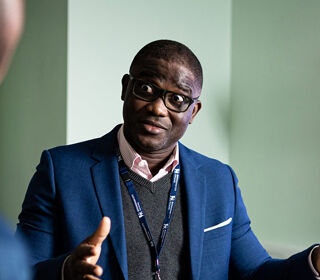
Blog

Choosing your degree subject and university is a big decision. We’re sure you have lots of questions about everything from the social life to what topics are covered in your chosen course. If you’re considering studying a Biomedical Science degree, we’ve brought together some key information to help you understand our courses better.
Biomedical Science
What is it?
Biomedical Science examines health and human life processes, and looks at the diagnosis, management and treatment of illnesses and diseases. It has a strong biology focus and covers areas such as physiology, biochemistry, cell biology, microbiology and genetics. The practical elements are often laboratory based, so having good methodical and analytical skills is important if you’re considering this subject.
Where will I study?
You'll be based at our City South Campus (by the Birmingham Botanical Gardens), with everything you need on one campus, from course-related facilities to pizza in the Students’ Union!
What facilities are available for this course?
There are two main laboratories for you to use – a microbiology lab, and a bioscience lab. These contain several work stations with sinks, gas points for bunsen burners and space for you to complete experiments. The labs are equipped with modern equipment for teaching many of the molecular biology techniques that underpin modern clinical and research labs such as polymerase chain reaction (PCR) machines (including real-time PCR), protein and DNA electrophoresis equipment, ELISA, a variety of cell-analysis and cell-culture tools.
What additional opportunities are open to me?
You can choose to take an optional placement year on this course, to improve your knowledge and skills and gain valuable work experience in the industry. Two students worked within the Biomedical Science Department for their placement year. They were able to see the University from a staff perspective, access equipment they wouldn't normally use, and help other students with their practical lessons.
Who will I be taught by?
Our Biomedical Science staff have expertise across a range of specialisms, and many are active researchers. Find out about the work of one of our lecturers, clinical biologist Dr Martin Goldberg.
Q
Is this for me?
If you have a keen interest in science and health, have a methodical and inquisitive nature, and want to make a difference to others from behind the scenes, then this could be for you.